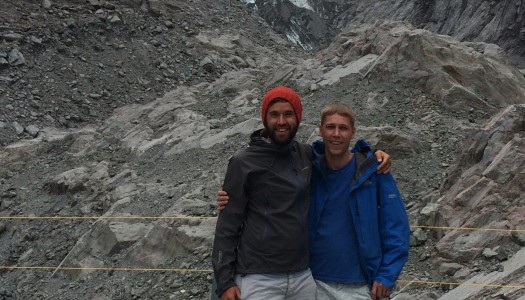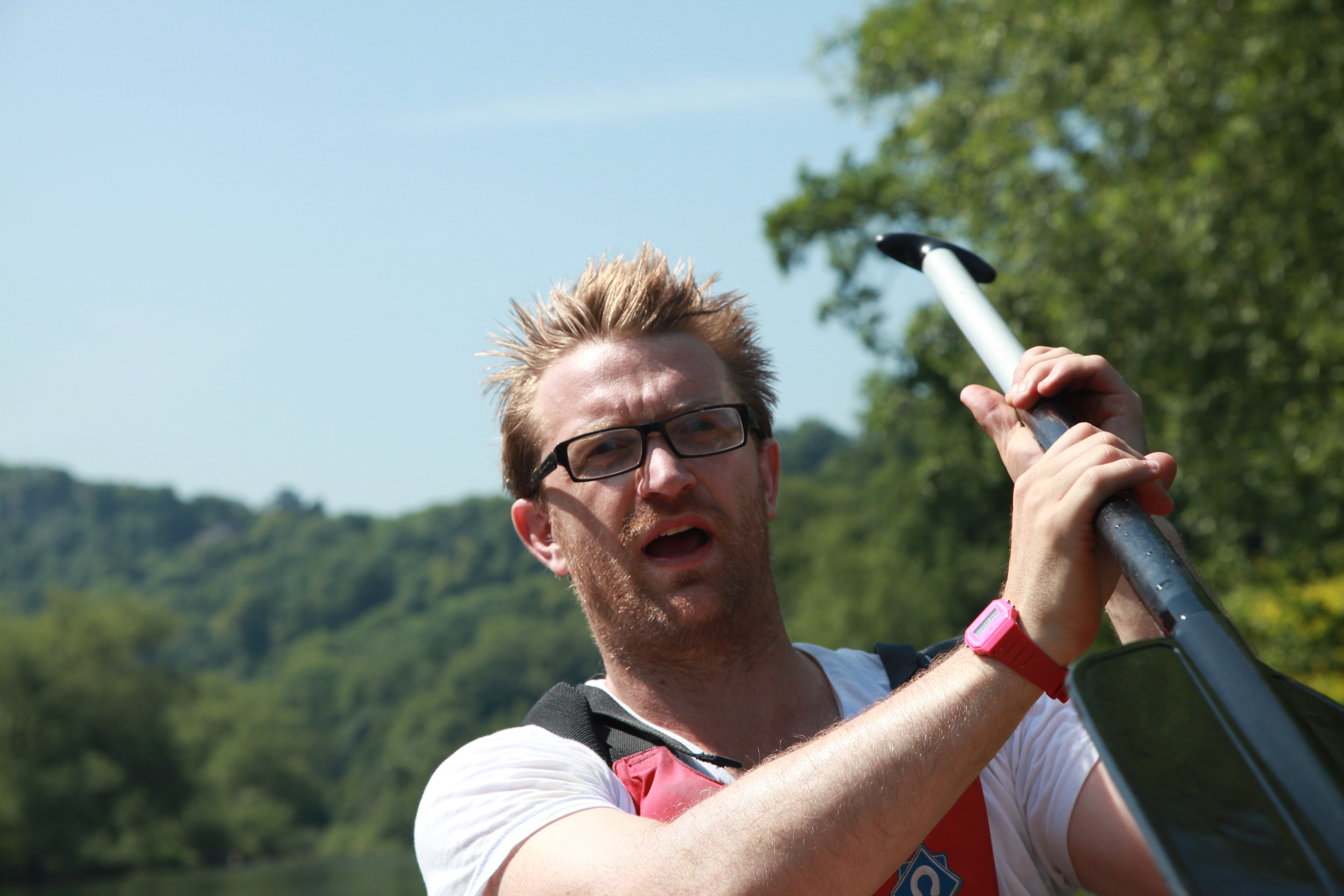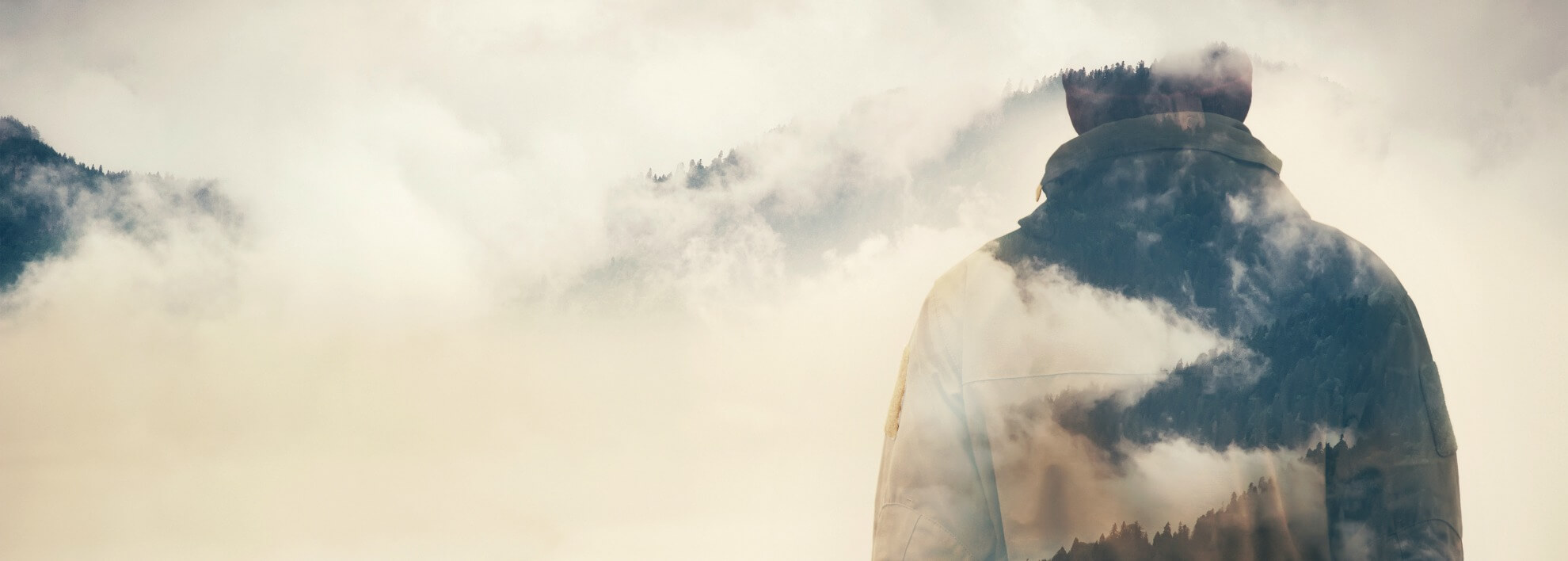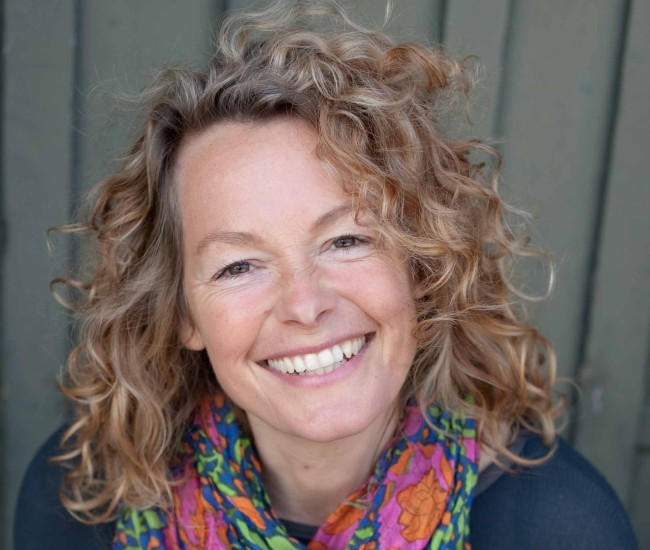
Credit: Clare Richardson
Kate Humble has become a beloved mainstay of British television, having presented some of our most iconic shows, including Springwatch & Autumnwatch, Countryfile, Lambing Live, and many, many more. Kate is also one of the British countryside's most earnest supporters, and has a real passion for encouraging people to get outside and enjoy the great outdoors.
We were incredibly lucky to catch up with Kate for a chat about her latest BBC show, what we can do to protect out countryside, and her favourite dog walking spots around the UK.
What was the inspiration behind your recent BBC show Back to the Land?
It’s really a celebration of what I think of as a rural revolution. There are more and more people returning to the countryside, either going back to where they came from or thinking about a different way of living and making a living.
The countryside tends to be viewed, particularly in the media, as being populated by people putting up bunting or leaning on gates and chewing bits of straw, whereas the reality is that the countryside is actually as important to our economy and the functioning of the country as urban areas, and it is full of ingenious and innovative people doing some really interesting things.
Back to the Land profiles some of our most inventive and engaging rural entrepreneurs. For example, we had one guy from Pembrokeshire who, like all many young people from the area, left to find work. However, he then realised he wasn't really happy, and that what was important to him was his family, being near the beach and local food, so he set up The Pembrokeshire Beach Food Company, turning over £750K a year, selling seaweed harvested off his beach to the Japanese!
The series is full of really inspirational and motivational stories of people who have followed their heart, and are driven by a love of where they live and what they do, not so much by the need to make money.
The response has been so overwhelming - lots of people think that’s the way to go and that’s what we need to do; look to our hearts and minds, and take a bold step to do what we’ve always wanted to do because the dividends can be incredibly rewarding.
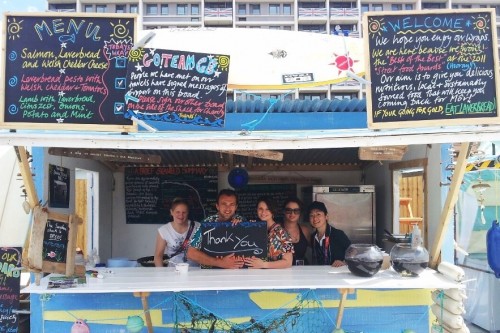
Credit: Pembrokeshire Beach Food Company
Back to the Land is available on BBC iPlayer
Why do you think more people are heading to the countryside?
I think it’s picked up on a zeitgeist that’s very much around at the moment with Brexit and other uncertainties of people wanting to take back control of their lives a bit more, and feel a bit more responsible for their world, and these people have done that.
Also, I think a lot of it is that in the past it was fairly usual to join a company in your 20s and work until you retired, but that doesn’t really exist anymore, and people don’t want to work like that anyway. There's a certain lack of job security that has made people think in a more mobile way and about other ways of making a living beyond the more traditional methods. Combining that with slightly strange political landscape at the moment is making people turn towards a life richer in other ways, more wholesome and more sustainable because of it.
How do you think Brexit will affect this trend of moving to the countryside?
The thing is that no one knows what’s really going to happen. There's a lot of confusion and anger around the whole situation, but I suspect that people will feel the need to take back a bit of control for themselves and not rely on the government or corporations for their futures.
There’s something very appealing, but frightening, about taking your future into your own hands and making a living that may deviate from “normal” or what people expect of you. The upheaval of Brexit might make it worth following what you really want to do because the rewards might be greater than working for a company that may be adversely affected by Brexit.
Tell us a bit about your Humble By Nature business?
Well it’s a working farm but we also run rural skills courses there too, including animal husbandry, hedge laying, dry stone walling, bread making, charcuterie, crafting with willow, wool - all sorts really!
We also run educational days for local schools. At Humble By Nature, we feel very strongly that the future of the countryside is in the hands of the future generations, and if those young people don’t have the joy of experiencing it and enjoying it, then why would they want to protect it? And so we feel very strongly that part of our remit should be to give young people the opportunity to come to a working farm, get their fingernails dirty, see animals to understand the role livestock plays, what farmers do, and see that without farmers none of us would survive.
It would be a nice thing if we could support our farming communities rather than do them down, which seems to be a bit of a fashion at the moment.
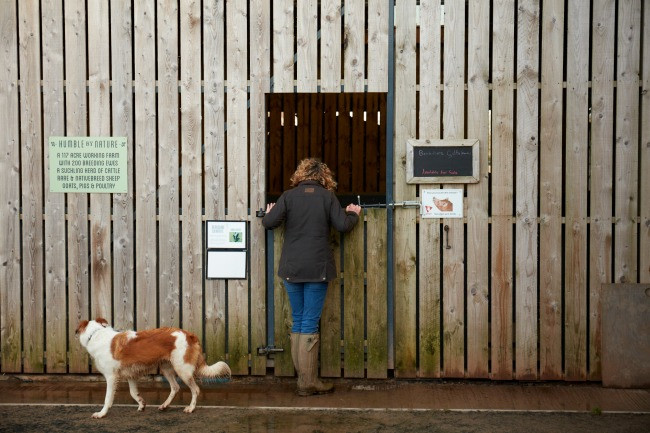
(C) Oliver Edwards/Countryfile
So is education the key to protecting our countryside?
Absolutely, 100%. Education and engagement. Making sure that people of all ages have access to Britain’s countryside and access in a way that is meaningful and isn’t just the picture postcard bunting view of the countryside.
Read more: Is The UK's Green Belt at Risk of Disappearing?
Read more: Expert Advice on Looking After The Countryside
Sometimes people view the countryside as a leisure centre with trees but it’s not; it’s working, functional, wonderful part of the jigsaw that makes up Britain. People need to understand that the countryside has a role beyond just being the place where you go for a walk or have a cream tea, that actually it's somewhere that plays a role on our economy.
It is a living, breathing, working part of the country, not just a leisure ground. That said, the more people can get out into our wilder spaces and enjoy them and experience them, the better chance we have for the future of the countryside.
You're a big dog lover, and you recently released a book called Friend For Life - tell us a bit about it...
It looks at the extraordinary partnership between humans and dogs. What kicked off my interest in this area was the fact that I had a working Welsh sheepdog puppy that I had to learn to train and work. I’d never worked with a dog before so this was a whole new experience for me, and through that I started to see that actually there was a very different relationship we have with dogs that goes beyond just being pets.
So I started to explore ways dogs have become intrinsic to human life, starting with herding dogs but then all the other ways dogs support us, from pulling sleds to search & rescue and beyond. I also looked at the work dogs do in the military, the work they do to help humans explore the remotest parts of the planet, and one of the most extraordinary and growing areas is the way dogs can support human health. For example, being used to be able to diagnose cancer or support people with type 1 diabetes or with extreme peanut allergies.
I wanted to explore the idea of whether, as a species, humans have got to point where we can live without dogs or not, and I would argue whether you like them or not we can’t live without them. They’ve become too important and intrinsic to our lives.
Friend For Life is available now to buy
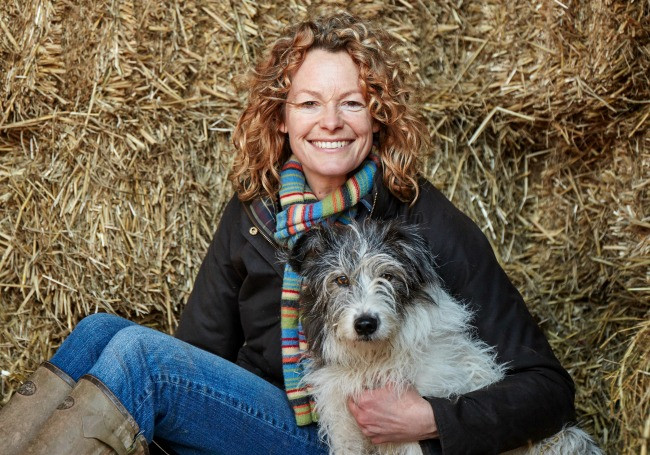
(C) Oliver Edwards/Countryfile
Do you have any favourite dog walking spots in the UK?
I’m very lucky, I live in the Wye Valley in Wales, and so one of my favourite places is right on my doorstep. I can head a bit further west to get into the Black Mountains and the Brecon Beacons, which are really magnificent walking locations. If I want to go to the coast then the Gower Peninsula is probably my favourite part of Britain’s coastline. We’re very lucky to live in one of the most beautiful areas for walking in Britain.
Read more: Interview with Ordnance Survey - the History & Future of OS Maps
That said, there are an embarrassment of riches, and we are very lucky in this country. The thing that makes us luckiest of all is the magnificent Ordnance Survey. We are so blessed to have a combination of amazing networks of footpaths and rights of way and the best maps in the world to show us where they are.
We recently celebrated some amazing women who love the great outdoors - do you have any female role models?
She’s long since dead but there was a remarkable woman called Mary Kingsley who was one of the best Victorian explorers. She was a remarkable woman. She didn't come from an exploring background but decided one day to stop living in Scotland and go to West Africa. She was probably one of the first Europeans to climb Mt Cameroon and she did it wearing tweed and Victorian button up boots and a hat!
Read more: Celebrating Women & The Great Outdoors
I love the spirit of a very ordinary middle class woman not seeing any barriers to taking off on her own and going to parts of the world that could be incredibly dangerous but very exciting.
A massive thank you to Kate for speaking to us! You can find out more about what she's up to over on her website or by following her on Twitter.






